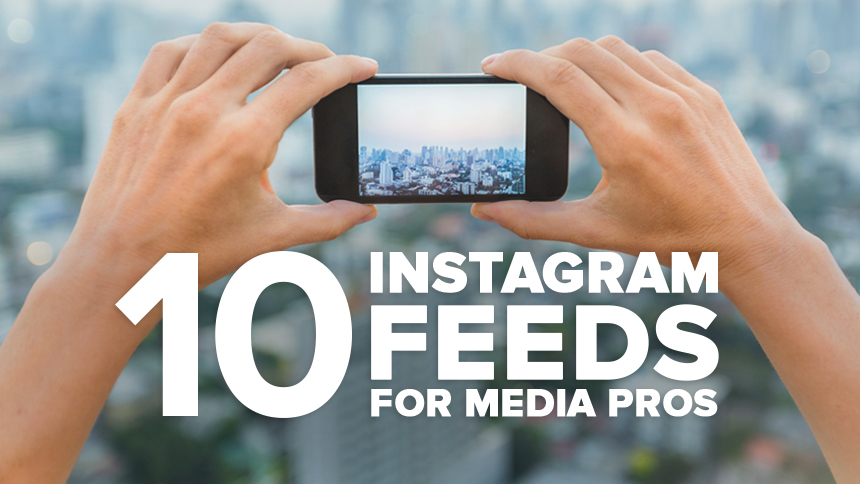Do You Need a Personal Brand For Your Job Search?
You’re probably familiar with branding as it relates to companies, products, and services. But the idea of “branding” can apply to yourself, too.
Also on Mediabistro


A “personal brand” is defined as the way you present yourself to others, both in-person and online. In other words, what do you want people to think of when they hear your name? More specifically, personal branding has become much more important to your job search, especially since the rise of professional social networking sites like LinkedIn. Whether you are a college student looking for an internship, or a professional at any stage of your career, here is a quick overview of how your personal brand can influence your job search.
Why is a personal brand important for your job search?
Suppose you are a hiring manager looking to hire for an entry-level PR position. You’ve interviewed two strong candidates, and you are conducting some final research before you make a decision. After typing each candidate’s name into Google, you see that the results for one candidate include a personal blog, a complete LinkedIn profile, and a few articles that she wrote for a PR company as part of an internship. The results for the other candidate only include a basic LinkedIn profile without a headshot, and an old high school newspaper article about the candidate winning a tournament with the track & field team. So which candidate would you choose?
If you are like 35% of employers, you wouldn’t even interview a candidate who doesn’t have an online presence. In other words, if hiring managers can’t find you online, it’s like you don’t exist. Maintaining a strong personal brand, especially online, can be the difference between getting the job or not.
Since personal branding is also proactive rather than reactive, you are more likely to have new professional opportunities come to you rather than relying on traditional job search methods like applying for advertised postings.
Laying the groundwork for your personal brand
The first step for creating your personal brand involves thinking about your personal and professional values, as well as what you want to be known for. Do you want to present yourself as a visual designer with a background in illustration? A marketing guru who has a passion for nonprofits? A writer who specializes in technology topics? Like a group of founders developing a company brand, you might benefit from writing a personal brand statement for yourself to use as a guide.
After asking yourself some deep questions about your mission, interests, and values, think about who your audience is for interacting with your personal brand. When it comes to a job search, your audience is probably recruiters, hiring managers, and prospective co-workers. Your audience will dictate the voice you use (friendly, professional, authoritative, funny, etc.) with any content you develop for your personal brand. Thinking about your brand statement as well as your audience will help you stay consistent across different social media profiles and marketing channels.
Once you have your brand statement and audience in mind, it’s time to start creating! Since a personal brand is especially important for your online presence, it includes content you create for social media and websites, which can position you as an expert in your area. Take these three steps to develop and curate content your personal brand.
[sc name=“Newsletter”]
Three steps for curating your personal brand
Optimize your LinkedIn profile
LinkedIn has more than 645 million members, making it one of the best places to start implementing your personal brand. To start, fill out your summary at the top of your profile. Your summary should be written in first-person and tell your professional story. Depending on how you’ve put together your brand statement, you can use this section to talk about your interests, experience, mission, or values. Your profile should also include a headshot. Compared to profiles without a profile photo, LinkedIn members with a photo receive 21 times more profile views and 9 times more connection requests.
Aside from your profile itself, your actions on LinkedIn also play a role in your personal brand. For example, you can write thought leadership pieces to publish on LinkedIn. This will establish you as an expert with meaningful contributions to your industry. It can also increase profile views. If you become an active participant in LinkedIn groups and comment on other threads related to your company, industry, or job function, this can also put you on the radar for companies that are hiring for positions that you would be qualified for.
You can also publish blogs and thought leadership pieces on LinkedIn. Along with this, you can use your profile to link to projects you’ve worked on and other places you appear on the web.
Set up a personal website
Creating a personal website is one way to put your personal brand on display. A personal website is particularly important for design-oriented professionals, writers, or creatives who need a way to present their portfolio to prospective employers. In addition to any portfolio work, your personal website should include your bio, links to your social media, and a way to contact you. Maintaining a blog related to your interests and/or your industry is another way to show that you are actively taking control of your personal brand.
Aside from content creation, use your website’s design (color palette, images, fonts, etc.) to convey your personality and brand. When possible, use your own name (like “www.janedoe.com”) as your domain name so that your website shows up at the top of search results when employers search for you on Google.
Think about your social media profiles
According to a 2018 survey from CareerBuilder, 70% of hiring managers use social media to screen job candidates and more than half have found content that caused them not to hire a candidate. We’re not going to tell you that everything you post on your personal social media channels should be completely professional and resume-worthy. But we will remind you that hiring managers will look. So go ahead, be yourself and post things you like, but remember to be kind and respectful. You know, things that hiring managers will want to see from you in the workplace.
More importantly, creating a personal brand is not a one-and-done. It involves carefully curating your online reputation and showing active involvement or expertise in your industry. Your personal brand should also evolve with you and be an integral part of your professional growth.
Looking for more job search tips? Subscribe to the Scouted newsletter.









